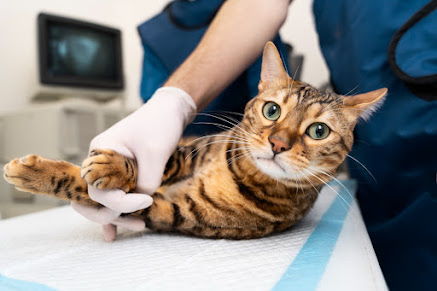Managing Feline Immunodeficiency Virus (FIV): Symptoms, Transmission, and Treatment for Cats
Feline immunodeficiency virus (FIV) is a prevalent and serious viral illness that affects cats worldwide. It weakens the immune system of infected cats, making them more susceptible to various other illnesses. While FIV-positive cats may initially appear healthy, they gradually develop immunological deficiencies that increase their vulnerability to life-threatening infections caused by common bacteria, viruses, protozoa, and fungi. Although there is no known cure for FIV, recent research indicates that cats with FIV can live average lifespans, provided they are not also carriers of the feline leukemia virus.
Identifying FIV Symptoms in Cats Cats infected with FIV may not show any symptoms for years, as the virus progresses slowly within their bodies. Once symptoms start to manifest, the condition may initially cause short-lived illness followed by extended periods of apparent good health. It is important to monitor your cat and seek veterinary attention if you notice any of the following FIV symptoms:
- Poor condition of the coat
- Repeated episodes of fever
- Loss of appetite
- Inflamed gums and mouth sores
- Persistent or recurring infections of the eyes, skin, upper respiratory tract, or bladder
- Chronic diarrhea
- Vision problems
- Seizures
- Behavioral changes
- Signs of neurological disorders
Weight loss is also a common symptom of FIV in cats, and many infected felines eventually develop cancer or blood disorders.
Transmission of Cat FIV Most cases of FIV occur when an infected cat transmits the virus to another cat through a deep bite, often resulting from territorial conflicts. Outdoor cats are particularly vulnerable to such injuries. Additionally, a mother cat infected with FIV can pass the virus to her offspring. However, FIV is not easily spread through common feline contact acts like social grooming, sneezing, or sharing a litter box. It's important to note that cats cannot transmit the FIV infection to humans; they can only transmit it to other cats. To prevent your cat from contracting the virus, you can:
- Keep your cat indoors to minimize interaction with diseased cats.
- Use a leash when walking your cat outside.
- Ensure that any cats with prolonged contact with your pet have tested negative for FIV.
- Have newly adopted cats tested for FIV before introducing them to your household.
FIV infections are most common among middle-aged cats between 5 and 10 years old, and male cats are twice as likely as females to become infected.
Diagnosing Cat FIV If you suspect your cat may have the FIV virus based on observed symptoms, it is essential to have them examined by a veterinarian. Take note of the FIV symptoms you have observed and communicate them to the vet. It is advisable to keep your cat indoors until a confirmed diagnosis of FIV is obtained to prevent potential transmission to other cats. Vets typically diagnose FIV in cats by conducting blood tests that check for specific antibodies present in an infected cat's blood. Additional tests may be performed to confirm the diagnosis, especially in pregnant cats that can transmit FIV to their offspring.
Treatment Options for Cat FIV Currently, there is no specific antiviral medication available for the treatment of FIV in cats. Most veterinary efforts focus on maintaining the cat's asymptomatic state for as long as possible. One study suggests that FIV-positive cats, on average, live for about five years after diagnosis, although individual prognosis may vary.
If FIV symptoms emerge, treatment primarily focuses on managing secondary infections resulting from the virus. Common treatments for FIV-positive cats include:
- Medications to address subsequent illnesses
- Fluid and electrolyte replacement therapy
- Parasite control
- Immune system boosters
- Anti-inflammatory drugs
- A nutritious diet that is gentle on the cat's system
In caring for FIV-positive cats, veterinarians may also recommend the following:
- Keeping the cat indoors to maintain its immune system and prevent transmission to other cats
- Neutering male cats to reduce territorial behavior
- Spaying female cats to prevent the transmission of FIV to future generations
- Monitoring the cat's behavior and health for any changes
- Scheduling at least two veterinary visits per year, including urinalysis and blood count
- Avoiding raw foods and eggs in the cat's diet
Antiviral therapies like interferons or medications such as AZT (azidothymidine) can help extend periods of asymptomatic stages in FIV-infected cats. Early detection and treatment of FIV can increase a cat's life expectancy and enable them to enjoy a relatively good quality of life.
In conclusion, Feline Immunodeficiency Virus (FIV) is a serious health concern for cats worldwide, affecting their immune system and making them vulnerable to various infections. While there is no cure for FIV, it is possible for infected cats to live average lifespans with proper care. Understanding the symptoms, transmission routes, and available treatment options for FIV can help cat owners provide the necessary support and medical attention to ensure their furry companions have the best possible quality of life.






